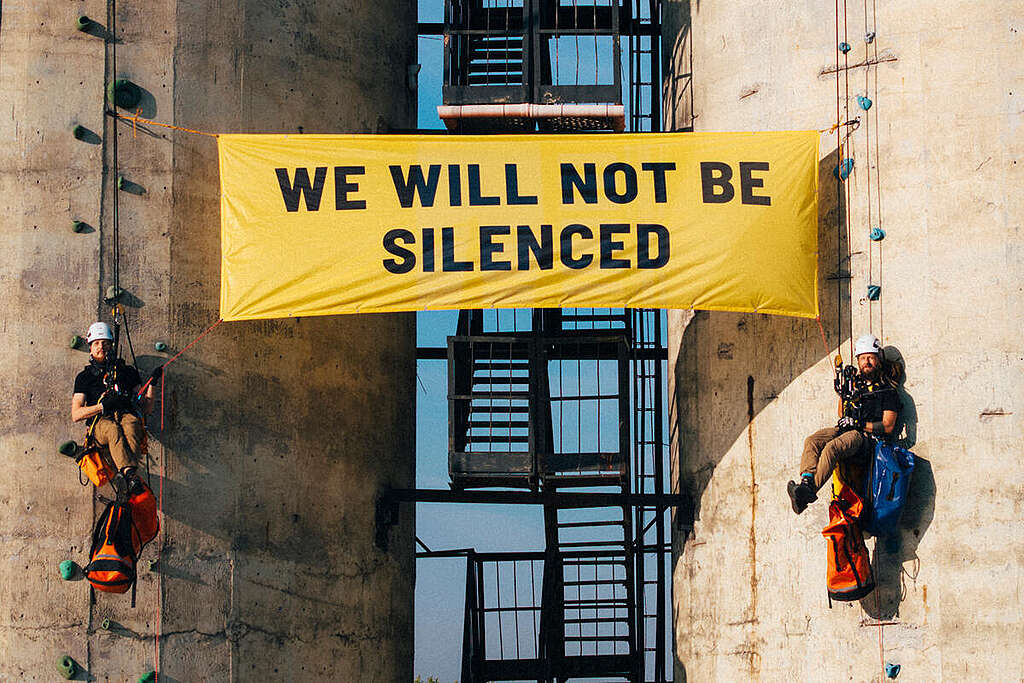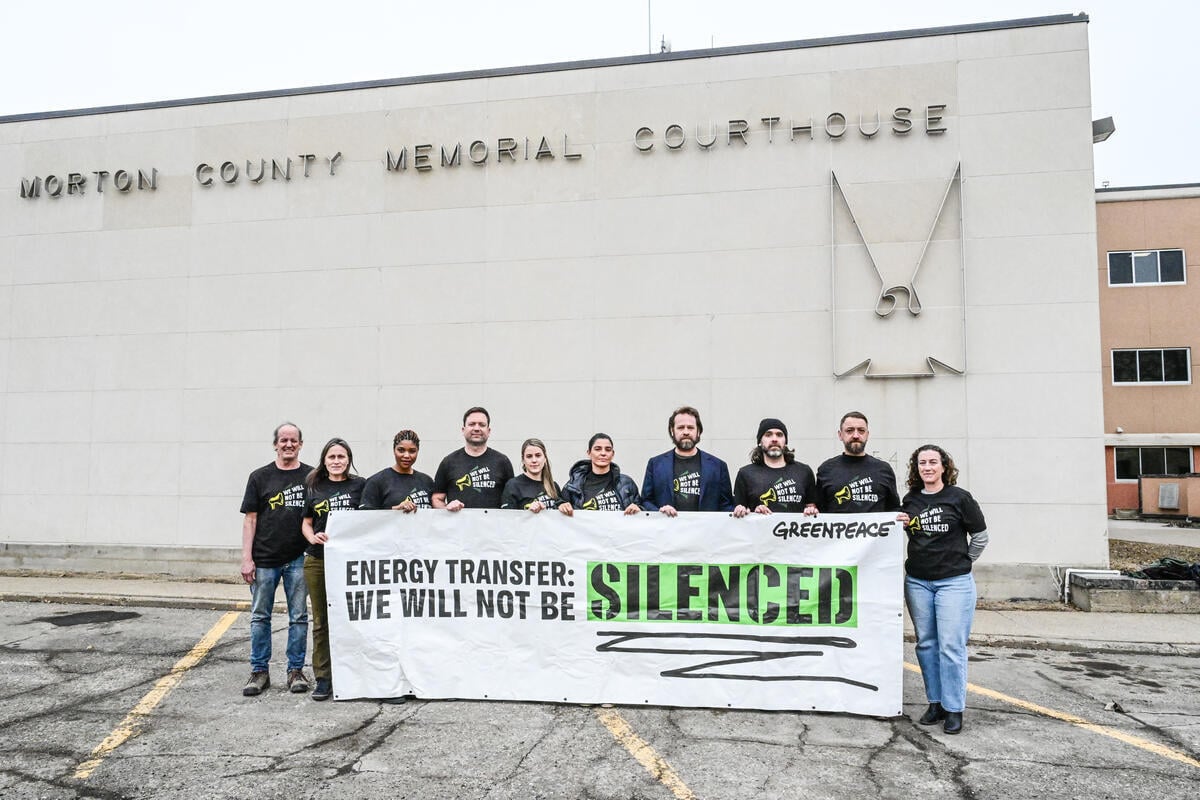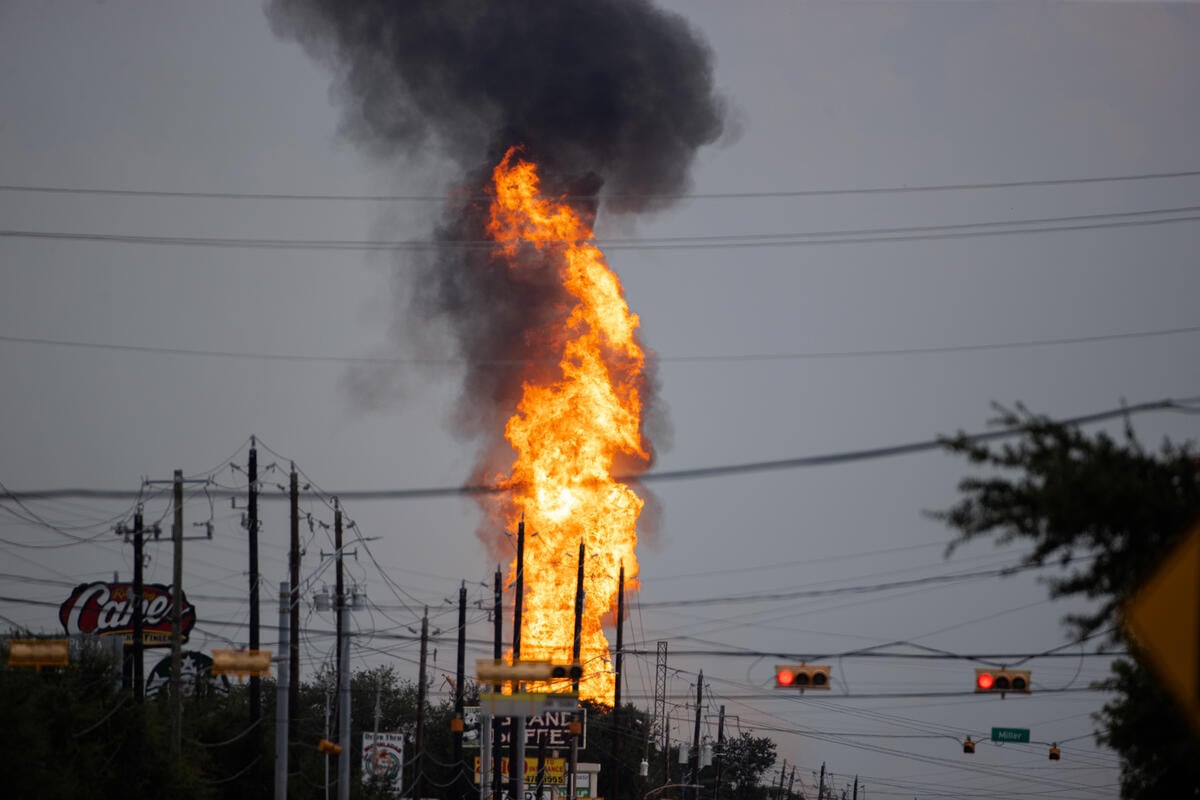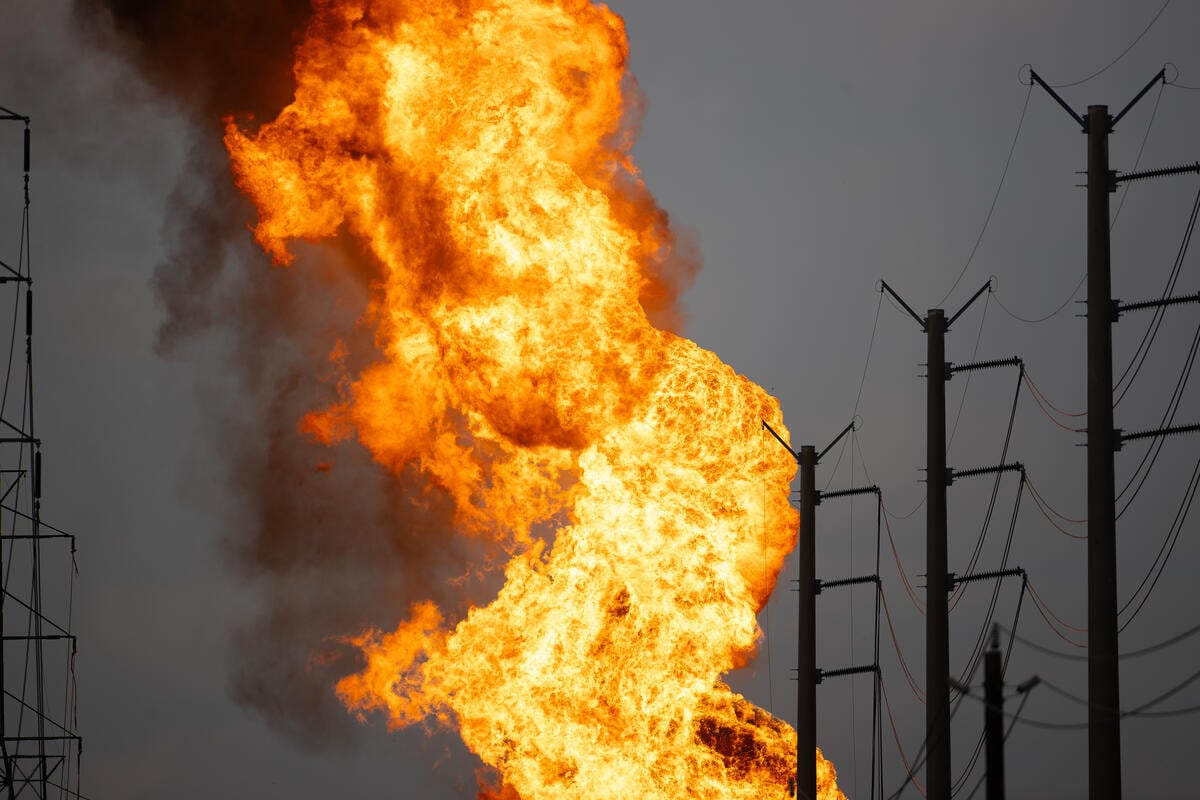
A final judgment has officially been entered in Big Oil company Energy Transfer’s massive lawsuit against us.
Nearly a year after a North Dakota jury decided that three Greenpeace entities are liable for more than $660 million in damages, the Court awarded Energy Transfer $345 million.
But this is not the end of the case — or Greenpeace USA.
We will request a new trial, and — if necessary — appeal the decision to the North Dakota Supreme Court. The law is firmly on our side, and we are confident in our strong arguments for an appeal.
As the next chapter of this now eight-year legal saga begins, we want to thank every Greenpeace supporter. Your commitment, and your shared concern about the wider threat this lawsuit poses to the work of so many organizations and individuals, has powered us forward.
Together, we are going to show Big Oil that they won’t sue us out of existence.
Greenpeace USA’s more than fifty-year legacy of nonviolent direct action, peaceful protest, and exposing environmental harm will live on.

Donate to the Warrior Defense Fund to help us fight back.
Donate“They’re going to pay for this.”
That’s what Energy Transfer’s board chair Kelcy Warren said in 2017 after his company first sued Greenpeace entities for supporting the Indigenous-led Standing Rock resistance.
In their closing statement at trial, Energy Transfer’s lawyer confirmed that was still their mission. Telling the jury “solidarity” and “Indigenous leadership” are actually “deceptive code words” – and that ruling in Energy Transfer’s favor is about “more than this case”.
This lawsuit has always been about Big Oil trying to make someone “pay” for the Dakota Access Pipeline protests, erase Indigenous sovereignty, and weaken the climate movement.
What happened at Standing Rock scared Big Oil. They saw a grassroots, Indigenous-led protest in North Dakota organically grow into an international resistance that activated millions.
They saw how powerful the climate movement can be. Energy Transfer sought massive “exemplary damages” because they want this case to be a warning to any person or organization that thinks about exercising their right to speak out or peacefully protest.
With Donald Trump back in the White House, this playbook is now everywhere you look: comply and stay silent, or your institution will be destroyed.
It’s not a coincidence that Energy Transfer and Kelcy Warren are Trump’s largest fossil fuel industry donors. And it’s not a coincidence that all of this is happening just as the world is running out of time to achieve existential climate goals.
While it remains both possible — and economically viable — for humanity to curb climate pollution on the scale that’s necessary, that won’t happen through incremental change. The changes we need will require the mass mobilization of a global climate movement.
But in the years since the Standing Rock protests, anti-protest laws have spread across the U.S. and the world. Two of the most important components of change and progress throughout human history — free speech and peaceful protest — have never been more endangered.
We must defend those rights. Our future depends on it.
We’re not going to allow Big Oil to stop us from living our values and building the better world we know is possible.
While there are many reasons to be worried right now, there are even more to be hopeful. We have a lot of work ahead of us, but we’re in this together.
Together, we’re going to hold polluting fossil fuel companies financially accountable for the damage they’ve caused.
Together, we’re going to protect our oceans and ban deep sea mining.
Together, we’re going to achieve a global plastics treaty.
Together, we’re going to defend democracy from fascism.
Our work continues.



